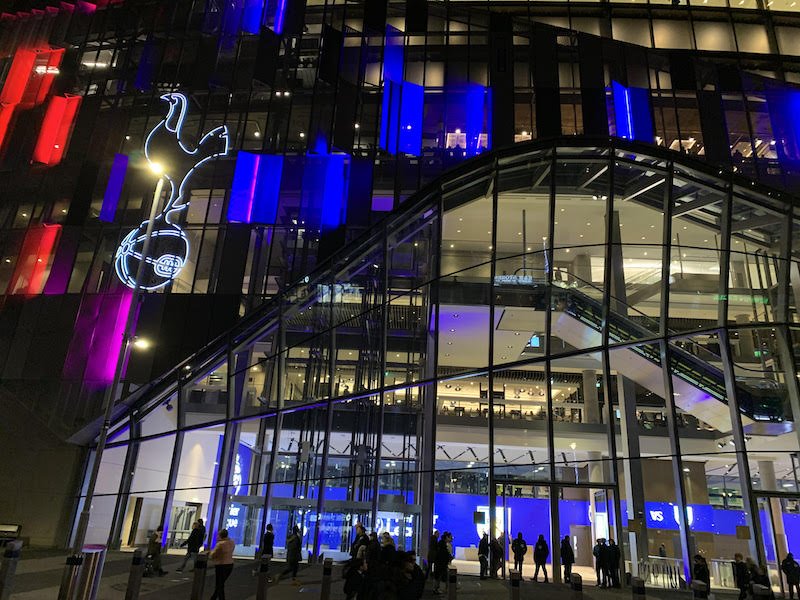By Lucas Pereira, FootballPredictions.NET, 19:07 30/09/2020
Updated at: 19:07 30/09/2020

The Tottenham Hotspur Stadium finally opened in April of 2019 after almost four years of construction. This, after the North London side had relocated from their old stadium on the same site to play home and European matches at Wembley, England’s national stadium. The total cost of the development of the imposing stadium is thought to stand at close to £1 billion.
Tottenham Hotspur and their Chairman Daniel Levy are thought to have paid for their glittering new 62,000 capacity stadium through a combination of their cash reserves and several bank loans - with the club’s total loan debt standing at £852 million and due to be fully repaid by 2050.
Levy and the club have planned for this outcome, however, taking into consideration many different factors which saw them pull the trigger on the monumental investment.
Stadium cost exceeded Spurs’ expectations
Spurs’ stadium development was included in the Northumberland Development Project, which aimed to regenerate the area surrounding the stadium over 20 years. It included the construction of a club museum, shops, houses and other residential infrastructure such as the improvement of tube and train stations.
The second phase of the development project included the stadium’s construction and was estimated to cost just over £300 million. This cost was then revised to upwards of £400 million in July 2018 - before the impacts of Brexit and other factors drove the projected cost up even further.
Brexit was estimated to have caused a 15% increase in build cost, while changes to the plans, overtime figures, extra contractors and higher construction costs caused Daniel Levy to concede that the stadium had cost around £1 billion to build. This revelation came just before the stadium’s opening ceremony in April 2019.
Bank loans provided much of the outlay
In addition to using cash reserves from the club itself, Spurs and chairman Levy utilised lending funds from HSBC, Goldman Sachs and Bank of America Merrill Lynch in order to fund the construction of the stadium.
All in, the borrowing totals £637 million - £525 million of which was refinanced by Levy in September of 2019.
This year the North London club secured a further loan from the Bank of England for around £175 million. This became necessary due to the ‘sporting blackout’ which saw fans barred from entering stadiums around the world - preventing Spurs from gaining any revenue they had relied on from football and beyond.
The Bank of England loan, however, is thought to be at a much more reasonable rate of interest than the loans secured to build the stadium.
This amount of debt won’t trouble Levy and the club, with the stadium part of an iron-clad plan to take Tottenham Hotspur truly to the top echelons of the football world.
Spurs under pressure to deliver on the pitch as stadium cost mounts
The primary source which will be used by Spurs to repay the various branches of finance used to construct the arena will be the broadcasting and prize money made available to the club depending on their performance in domestic and European competition.
However, with the club failing to qualify for the Champions League last season - pressure will be on manager Jose Mourinho and chairman Levy alike to deliver the right results on the pitch.
Spurs are also exploring the possibility of selling the naming rights to the stadium - following in the footstep of North London rivals Arsenal, whose stadium is named after Arab airline Emirates.
Amazon have been mooted as a possible partner, with Tottenham demanding a fee of £20m per year. Amazon have also been involved in the production of a fly-on-the-wall documentary which centres around the club - with the deal thought to bring in around £10m.
Ticketing and matchday revenue is also thought to have increased sharply since the move to the new stadium, doubling from around £45m in 2017 at the old White Hart Lane to upwards of £100m in the new stadium.